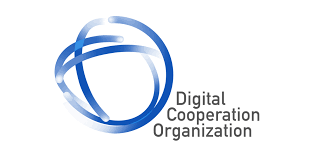
Nigeria’s participation in the Digital Cooperation Organization (DCO) positions it to benefit from the recently launched Model Digital Economy Agreement (MDEA), an interoperable rulebook designed to harmonize digital trade across member states.
The MDEA covers 12 core policy areas, such as trade facilitation, cross-border data flows, artificial intelligence, cybersecurity, electronic transactions, payments, and SME inclusion. Once implemented, it is projected to add USD 2.1 billion each year to intra-DCO digital trade from digitally delivered services alone, with wider benefits anticipated across goods and other sectors.
The DCO’s 16 member states—spanning the Middle East, Africa, Asia, and Europe- aim to foster inclusive digital growth by promoting entrepreneurship, innovation, and youth empowerment. Nigeria, a founding member since 2021, has aligned with the DCO to advance digital inclusivity, AI, and fintech adoption. The sixteen (16) member countries of the Digital Cooperation Organization (DCO) are Morocco, Ghana, Saudi Arabia, Bahrain, Cyprus, Bangladesh, Rwanda, The Gambia, Qatar, Djibouti, Pakistan, Greece, Kuwait, Oman, Jordan, and Nigeria. The organization’s objectives include accelerating regulatory harmonization, enabling firms to scale across borders, and creating inclusive digital economies that empower youth, women, and entrepreneurs.
Key Takeaways/Potential Benefits to African Trade:
The Model Digital Economy Agreement (MDEA) offers African economies, particularly Nigeria, significant opportunities by unlocking an estimated USD 2.1 billion in intra-member digital trade annually, enabling SMEs and fintechs to scale across 15 markets under harmonized rules, and attracting foreign investment while safeguarding consumer protection.
Its emphasis on shared standards reduces trade barriers, while a focus on youth and women’s empowerment fosters inclusivity, job creation, and innovation. For Nigeria, participation in the DCO strengthens its strategic position as Africa’s leading tech hub and allows it to influence continental digital policy.
